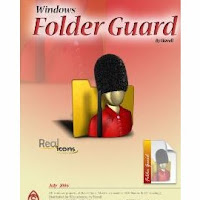If you share your computer with your business colleagues, family, or roommates, you can use Folder Guard to stop other users from opening your personal files, or even completely hide your documents until a valid password is entered. You can protect sensitive system files from modification or destruction, disable access to the floppy, other removable drives and CD-ROM, restrict access to Start Menu, Control Panel and applications. Windows XP (and Windows 2000/NT) allows you to use its built-in security to control access to data stored on the NTFS volumes.
With Folder Guard you can secure files and folders on both the NTFS and FAT/FAT32 drives, with a much greater flexibility: you can hide some files and keep other files in the same folder visible, set up the access rights using wildcards, or make files accessible to only some programs that you select.
If your version of Windows does not support file security (such as Windows 98 and Me), you can use Folder Guard to keep your important files and documents protected from unauthorized use. Folder Guard protects your documents by intercepting requests from other programs to work with files; your data is not modified in any way. When Folder Guard hides a folder, the folder-s contents becomes invisible to all applications including Windows programs like Explorer, applications like Office, and even MS-DOS programs.
You can require password access to the protected folders to keep away unauthorized visitors. On a user-by-user basis, you can allow or deny access to the files and folders of your choice, as well as to the removable drives, Start Menu and Control Panel. You can configure the protection so that users would not be able to download programs from the Internet or install them from the CD-ROM without your permission.
Here are some key features of "Folder Guard":
- Hides files and folders
- Locks folders and programs with passwords
- Restricts Control Panel, Start Menu, etc.
- User-specific restrictions







0 comments
Posting Komentar